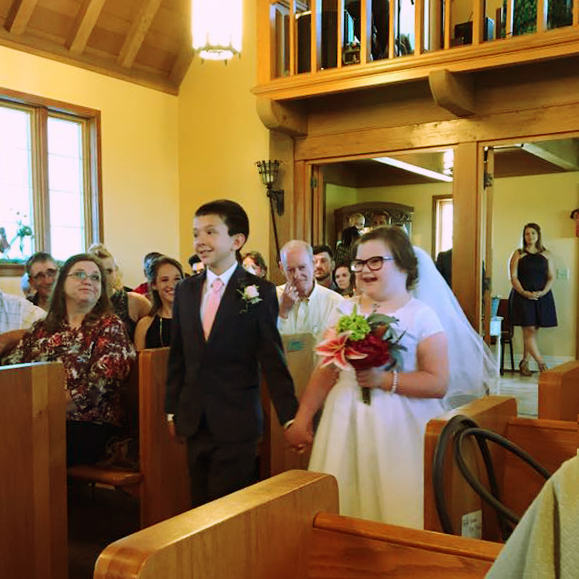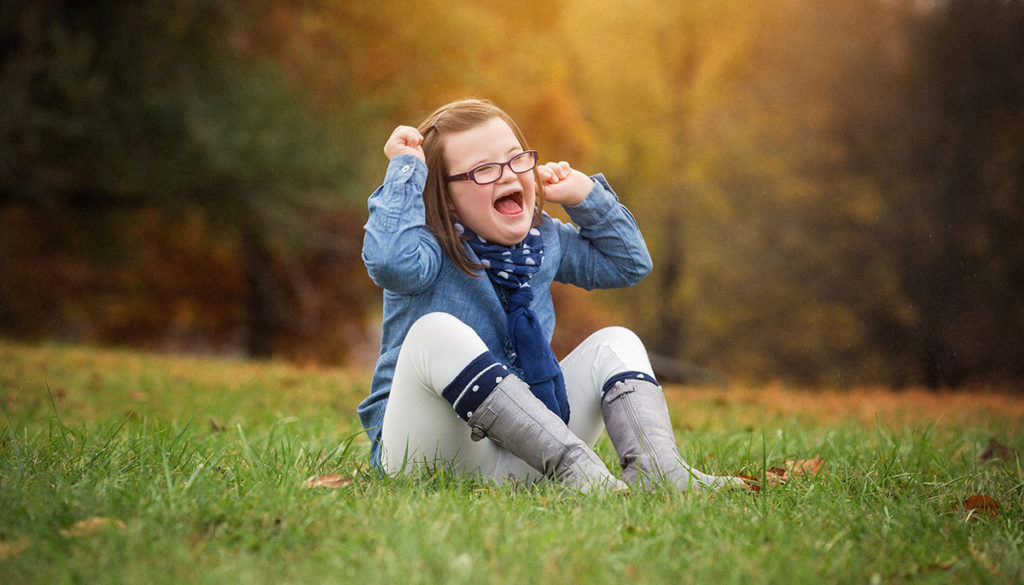Abby Amberger – Entrepreneur
by Bob Doman

This picture is from the recent wedding of Natalie Hagan, a great gal who has helped implement NACD programs with these two terrific kids—Abby and Lucas. Between these two proactive families, their schools, and caring individuals like Natalie and Debbie Hayden, the OT that referred them and has helped them implement their programs, we have a great model of what can be, what should be, and what needs to be.
Potential needs to be defined by opportunity and not by diagnosis or label. Outcomes for children with the same or similar labels can be dramatically different, with those outcomes largely being predicated on the opportunities provided.
Abby and Lucas both have wonderful families—families who have been great at getting their NACD programs implemented, advocating for their children, and looking toward their children’s futures. In both cases, the kids’ schools have learned to cooperate with and support the parents in the implementation of their NACD programs and their goals, and in addition have provided appropriate class placement and support. Both families have also successfully found help at home to assist in completing the children’s individualized NACD programs with excellent results.
I spoke of Lucas in a previous post, so now let’s talk about Abby.
Abby was referred to NACD by her occupational therapist when she was just over a year old. Abby is now an eight-year-old who will be entering the 3rd grade in a typical classroom and who is doing well academically and socially. She is involved in Girl Scouts, ballet, and she plays softball. Abby is a star, loved by classmates and everyone who is fortunate enough to know her. She is an entrepreneur. She also has Trisomy 21 (Down syndrome).
Being proactive and planning for her future, her parents have already started a business for her called, “Abby’s Mini Golden Doodles” with her own facebook page:
https://www.facebook.com/doodleloveme/
Abby is actively helping with the first litter of puppies and is learning how to care for the dogs. The plan is for her to learn dog training and handling, with the goal of developing a business involving dog breeding and dog handling, as well as a companion and therapy dog program.

One of the very difficult realities that most adults with Down syndrome and many adults with other developmental issues have is that the world is often only welcoming up to a certain point. Through the years, we have seen young adults with good academic function, good social skills, and even college degrees that could not get a job even close to commensurate with their abilities and skills. Imagine a child with Down syndrome working hard, with a ton of support from their family, academically competing with their peers, getting the same high school diploma as their classmates, having in many cases more appropriate social skills than most of their peers, and then being encouraged to pack groceries or move grocery carts upon graduation by their vocational advisors. This is obviously something that must change, but until it does, families having or starting businesses for their children is a very viable alternative for proactive families.
Abby is a delightful, happy, wonderful, contributing and beautiful child with a bright future. When everyone works together–parents, caregivers, therapists, school administrators, teachers, community members and organizations–to help the family achieve their goals for their child, there should be no limits.
What can be, what should be and what needs to be.
Potential is defined by opportunity.
P.S. – Often at the conclusion of Abby’s visits with me, she stops at the door, turns around, gives me a huge Abby smile, waves, and says, “Bye, Bobby.” Gotta love this kid!
